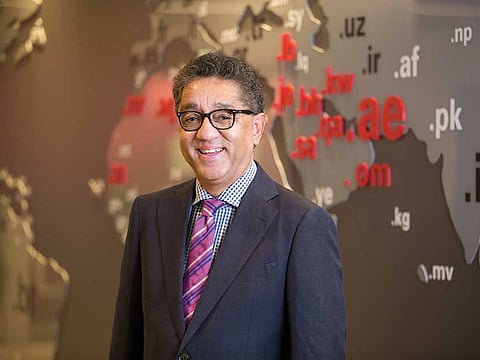More CEOs to come from the cyber security space in 2018
Most of us will be chatting with chatbots by the end of 2018, Oracle says

Dubai
Oracle expects to see more chief executive officers to come from the cyber security space in 2018 as part of an effort to boost security.
Arun Khehar, senior vice-president of applications at Oracle Eastern Central Europe, Middle East, Africa, told Gulf News that enterprise security will be company’s top priority for 2018 and much of it will be automated.
With today’s ‘borderless enterprise as a result of cloud, mobile and edge technologies like IoT, he said that there is general consensus that there is no such thing as ‘total security’. As a result, business information can no longer be protected by the IT team trying to create digital castles and restrict access.
“We’ll see an increasing focus on security among companies, especially with new regulations such as General Data Protection Regulation (GDPR) [coming into effect from May 25, 2018] coming in with their associated penalties for failure,” he said.
He added that more companies are expected to turn to the cloud for security as researches show that more mature users recognise that cloud provides better security than on premises environments.
According to research firm Gartner’s latest forecast, worldwide security spending is expected to total $96.3 billion in 2018, an increase of eight per cent from 2017.
With skills continuing to be scarce, Khehar said that security will increasingly feature artificial intelligence/machine learning capabilities. By 2025, autonomous operations will become the catalyst to accelerate enterprise cloud adoption.
By 2025, he said that 80 per cent of cloud operations risk will vanish entirely — a higher degree of intelligent automation will permeate the cloud platform.
“Using machine learning and AI techniques, autonomous operations will anticipate outcomes, take remedial action, and be aware of real-time risks. The top concerns are infrastructure downtime, security threats and vulnerabilities and data protection,” he said.
It’s not just in security that humans can’t keep up, he said, right across the business and across industries; organisations are struggling to make sense of the rapid proliferation of data whether that is in finance, HR, sales or marketing systems or in operations around systems management and security.
Due to the growth in AI, he said that most of us will be chatting with chatbots by the end of 2018.
“We are going to see a new wave of more sophisticated conversational platforms that will be developed; creating chatbots that will feel completely natural to talk to replacing the currently, relatively unsophisticated interfaces,” he said.
Emirates NBD, Mashreqbank, DED, Aramex and Dewa are using chatbots to initiate and carry on conversations with their consumers in the UAE.
“Chatbots will be one of the key technologies that will be found on every organisation’s strategic customer experience road map. Those that get in and adopt them successfully early on will steal a march on the competition,” he said.
There will be a growing number of specialised ‘intelligent bots’ that will interact and learn from each other, he said.
For example, he said that CEOs, CFOs, or employees will be able to inquire about company data. Professionals such as doctors, pharmacists, lawyers, teachers, engineers, and service personnel can retrieve technical information. Citizens and consumers can interact with service organisations.
Oracle expects 2018 to be the year that hordes of smart devices begin to be tamed, as the focus moves away from the ‘things’ themselves to the integrated platforms that will turn IoT data into actionable insights and data-rich business models.
When it comes to IoT, he said that there are three core challenges — integration, analytics and security. “As smart devices share increases volumes of distributed data among themselves, and back into the enterprise, the challenges around these areas will become exponentially more complex,” he said.



